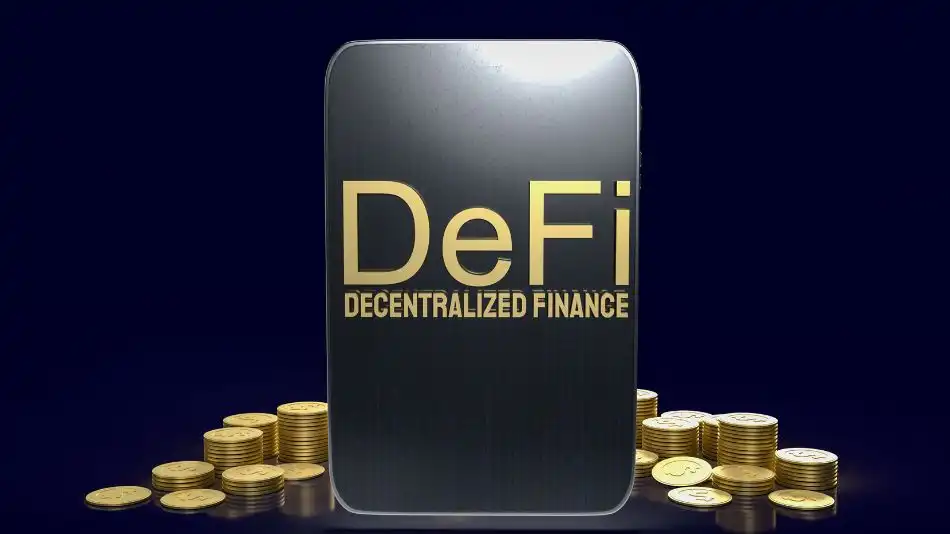
Table of Contents
ToggleWhat is DeFi – Introduction
After the emergence of cryptocurrencies and cryptoactives, in general, this part of the digital market has naturally evolved, maturing the system and providing increasingly safer transactions for its users. Thus, through DeFi, the number of possibilities that can be done using a cryptocurrency has also grown a lot.
For many, DeFi is still a promise within a promise, because these concepts and systems are relatively new to the world, not yet adopted or well known by most people.
However, solid steps have already been taken, and the promise is gradually becoming a reality.
In this article, we’ll explain what DeFi is and why it’s so relevant in the cryptoactives market. Enjoy!
What is DeFi?
Naturally, DeFi is related to the world of cryptocurrencies, as there is no way to talk about decentralized economy without thinking about bitcoins and altcoins, which are increasingly present in digital transactions.
Why is it important?
Decentralized finance, in general, is important because it allows greater savings for those who use the services of loans, deposits, insurance, in short, basically those services offered by traditional banks and insurance companies.
As they are decentralized, as they do not have a proper owner who provides these services, an intermediary agent is not needed to enable transactions between two people, which reduces bureaucracy and, consequently, makes it cheaper.
The technologies that make up DeFi enabled the creation of platforms such as DEXs, also called decentralized exchanges, as well as the use of smart contracts, to make safer exchanges between users.
Therefore, “Decentralized Finance” represents a structural refinement of cryptoactive platforms, as well as the possibility of offering new services to all its users.
What are smart contracts?
Smart contracts are technologies programmed to automate their own execution. In other words, they take on functions that an intermediary agent would take on, and for that very reason they don’t use one.
In this way, a transaction can be automated through a smart contract, and not through a company with its rules, which makes this programming a key part of DeFi.
Main types of DeFi applications
Below, it will be possible to identify the main types of DeFi application. It is through them that the concept of decentralized finance is built, check out:
Stablecoins
Stablecoins have a different configuration compared to other cryptocurrencies: they are linked to a non-crypto asset (such as EUR, USD, Gold, etc.), and therefore stable.
For many users, it is a good option when establishing the exchange with DeFi protocols.
We have an exclusive article on stablecoins and their link types, check it out: what are stablecoins and why use them.
Decentralized Exchanges
DEXs are specific platforms for cryptocurrency users and, unlike the old exchanges, these new ones have no owner, in other words, no centralization.
Its emergence was only possible due to smart contracts, and its use increased exponentially after the year 2020.
Do you want to know how a DEX works and its main differences with the old exchanges? Enjoy this article we have prepared on the subject: what are decentralized exchanges (DEX)?
Decentralized Insuranse
Insurance provided by a DeFi protocol, which provides coverage in case of hacker attacks, exploits or errors regarding smart contracts.
As with traditional insurance, the lost value can be returned to the owner, but it is the user community that decides what coverage an insurance will offer.
Incentive for Liquidity
Compared to exchanges, DEXs are still not as busy, which sometimes causes a lack of liquidity within the platform.
As an exchange, anyone who wants to offer cryptocurrencies to DEX, to generate liquidity, will receive some incentive in return, such as tokens.
Lending and Borrowing Protocols
Very traditional transactions, but now in a decentralized version. Using smart contracts, the user will no longer need to use a bank service, but a DeFi platform.
These loans are usually based on collateral. The user lends and, in return, provides a token, for example, to power the platform.
Operations, both loan and deposit, are carried out without the need for user identification.
What is DeFi – Conclusion
As seen, DeFi protocols allow cryptoactives to be what they should be: free, decentralized and with little or no bureaucracy.
Therefore, new platforms arose around the concept of decentralized finance, and new services are now offered.
In this way, users are increasingly getting a good structure for their business. There is not just one idea; the cryptoactive market itself begins to rework its form, being refined by the community.
Did you like this article? So, share with others interested and take the opportunity to check out other exclusive content on our blog.
